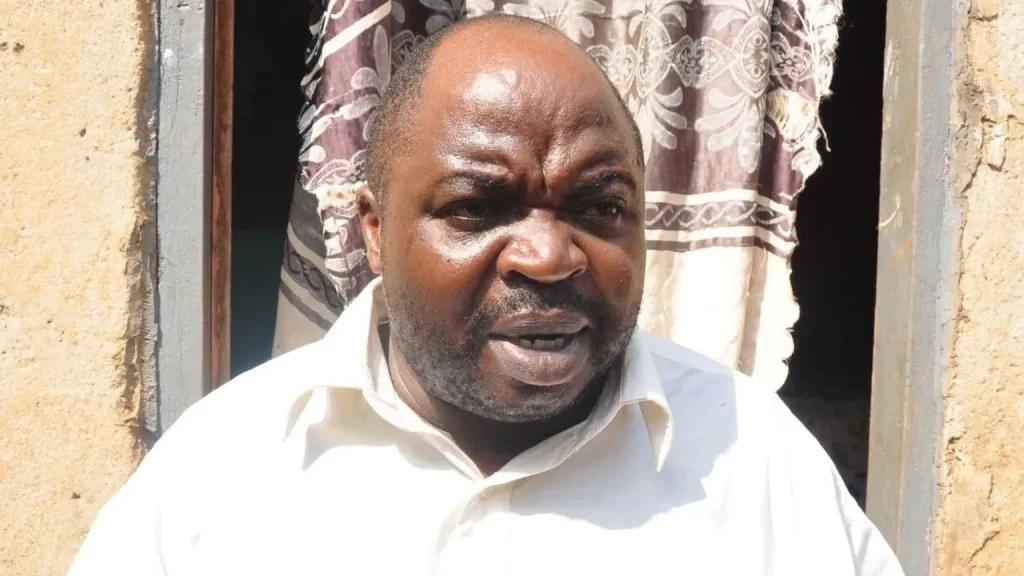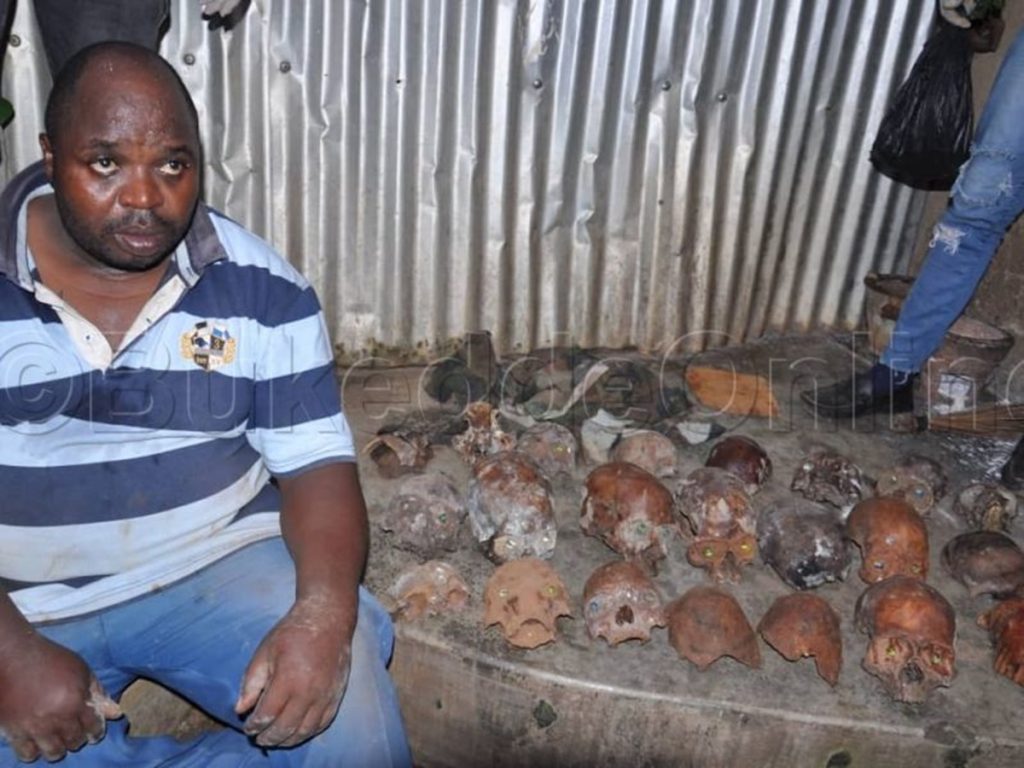Ugandan authorities have arrested a self-proclaimed traditional healer, Ddamulira Godfrey, after discovering 24 human skulls in his possession, police spokesperson Patrick Onyango confirmed to the BBC. The shocking find has raised concerns about human sacrifice practices in the country and highlighted the challenges in regulating traditional healing practices.

Godfrey, who claims to be a traditional healer and herbalist, was apprehended at his shrine in the suburbs of Kampala, Uganda’s capital. In addition to the human remains, police also recovered animal remains and skins from the location. The discovery has prompted a continued search of the premises, with authorities hoping to uncover more evidence.
Onyango stated that Godfrey would be charged under the Prevention and Prohibition of Human Sacrifice Act, a law specifically designed to combat such practices. “If he is found guilty, he will serve life in prison,” Onyango emphasized, underlining the severity of the alleged crimes.
The case has sent shockwaves through Uganda’s traditional healing community. The country’s Traditional Healers’ Association has swiftly distanced itself from Godfrey, emphasizing that such practices are not part of legitimate traditional medicine.
This incident is not isolated, coming just weeks after another disturbing discovery in the central district of Mpigi, approximately 41 kilometers (25 miles) from Kampala. There, police recovered 17 human skulls from a shrine, further highlighting the persistent issue of human sacrifice for ritual purposes in the region.

These cases underscore a deeply rooted belief among some individuals in various African countries that magic charms made from human body parts can bring good fortune, wealth, or serve as a means to curse enemies. Such beliefs, while not representative of mainstream African cultures, continue to fuel a dangerous underground market for human remains.
The Uganda Police Force has intensified its efforts to combat these practices, with Onyango stating, “We are charging him first under the Prevention and Prohibition of Human Sacrifice Act, which [prohibits] one being in possession of human body parts and instruments of human sacrifice.” This approach reflects the government’s commitment to eradicating such practices through stringent legal measures.

The case has reignited debates about the regulation of traditional healing practices in Uganda and across Africa. While many legitimate traditional healers provide valuable services to their communities, the exploitation of these beliefs by individuals for criminal purposes remains a significant challenge for law enforcement and policymakers.
Human rights organizations have called for increased public education and awareness campaigns to combat the superstitions that fuel demand for human body parts. They argue that addressing the root causes of these beliefs is crucial to preventing future incidents.
As the investigation continues, authorities are working to identify the origins of the human remains found in Godfrey’s possession. This process may lead to the resolution of missing persons cases and provide closure to families affected by these crimes.



